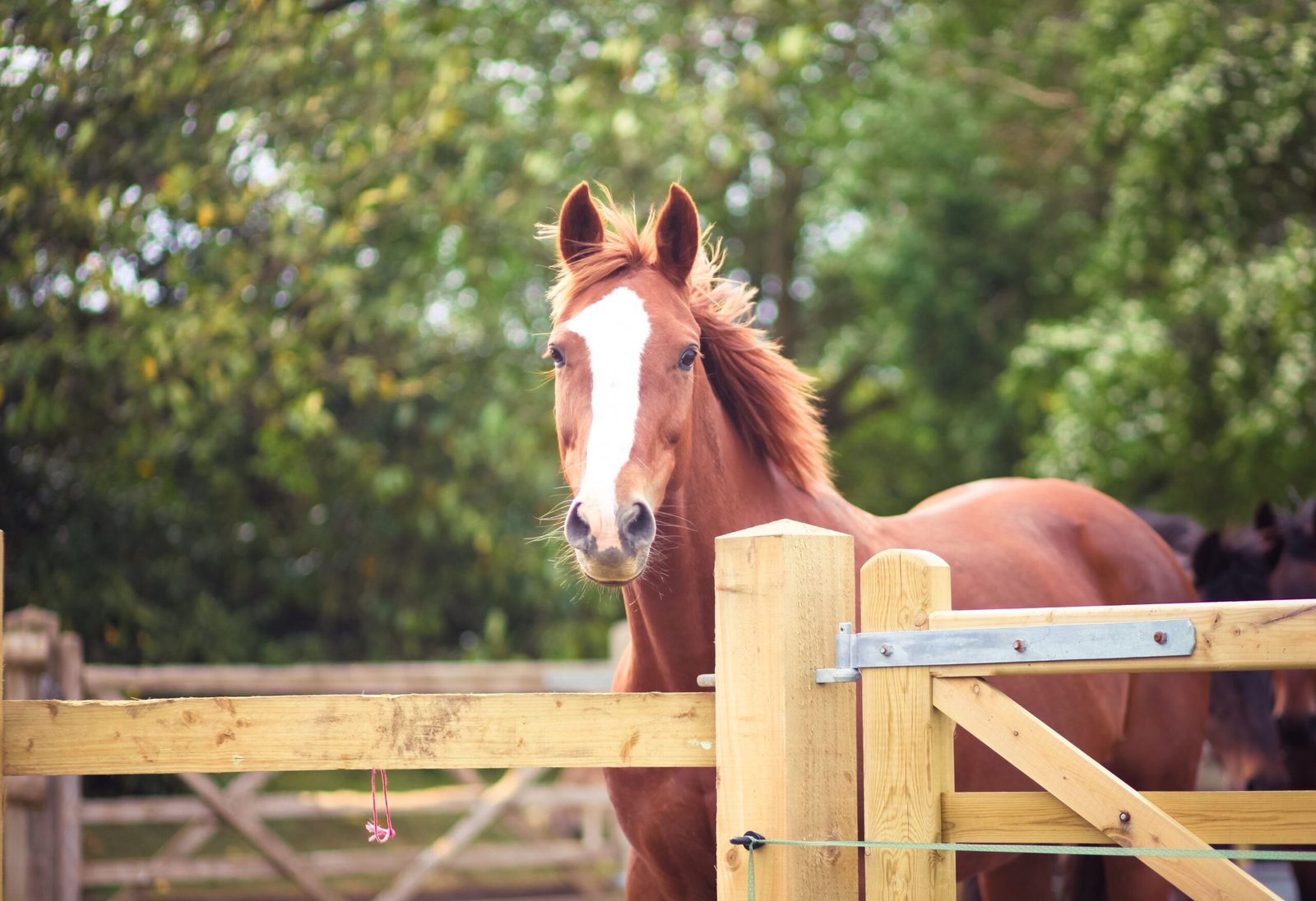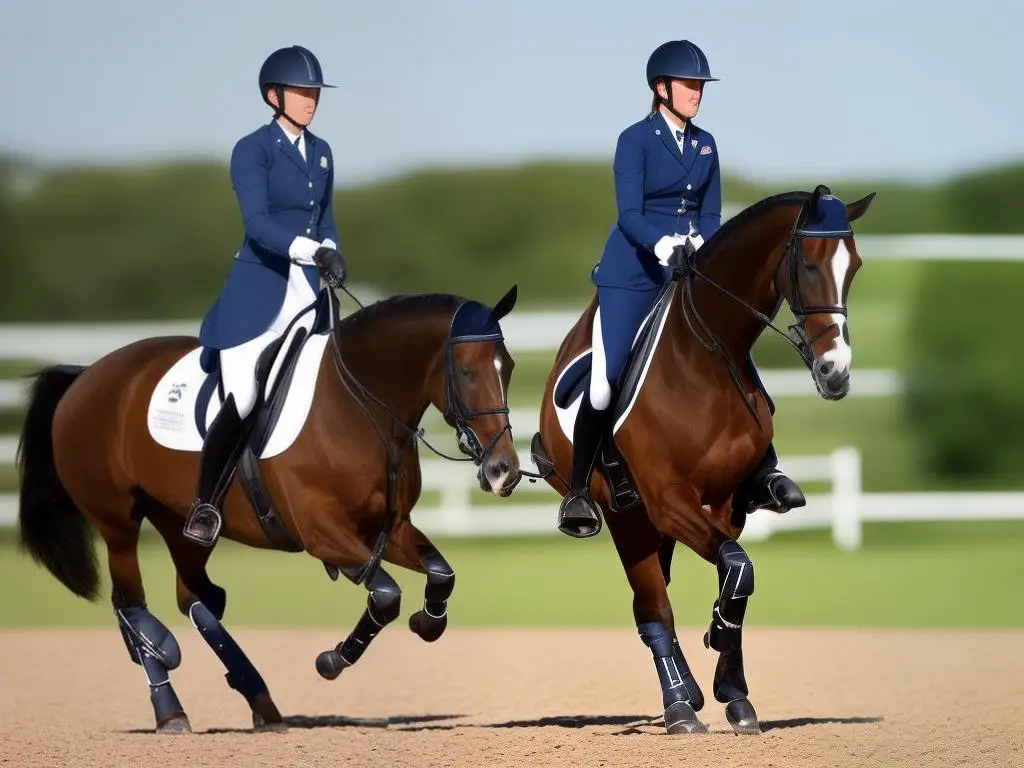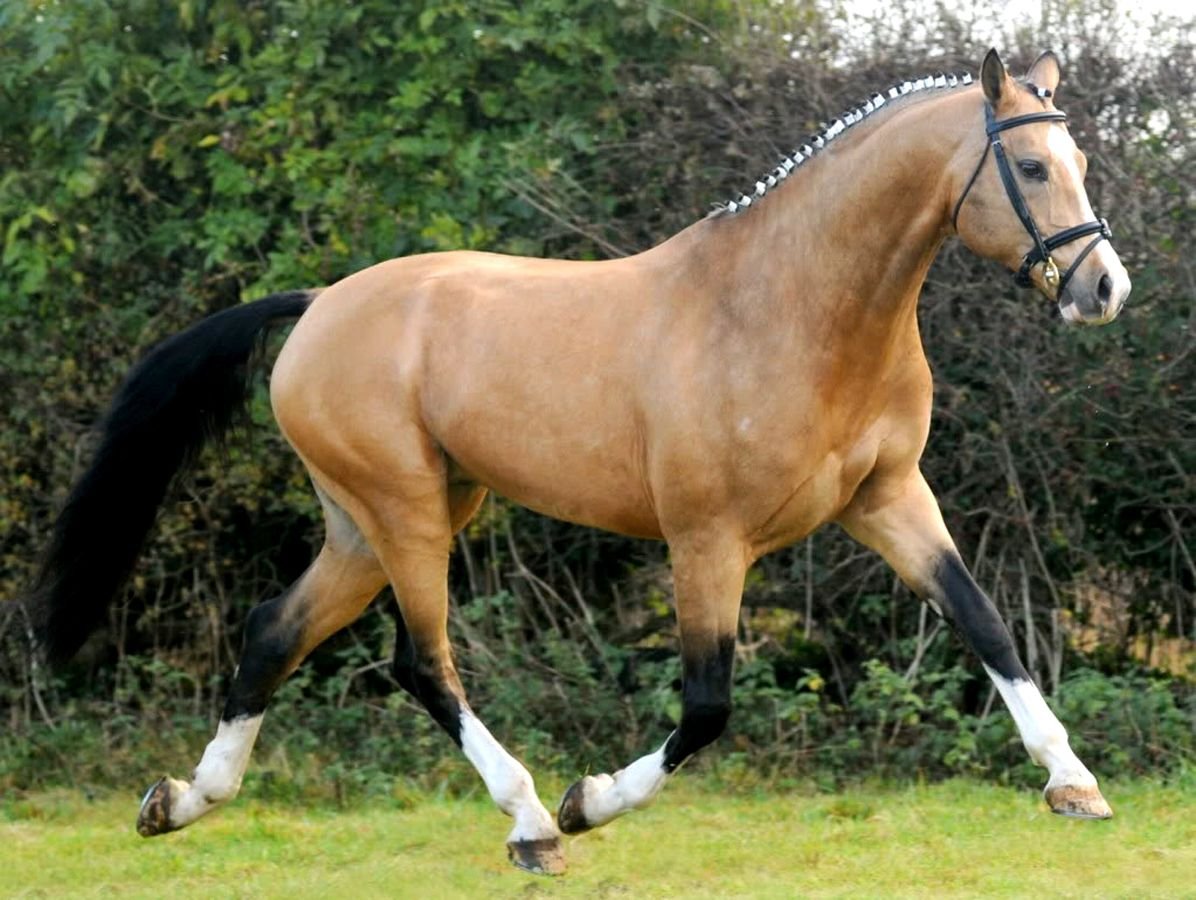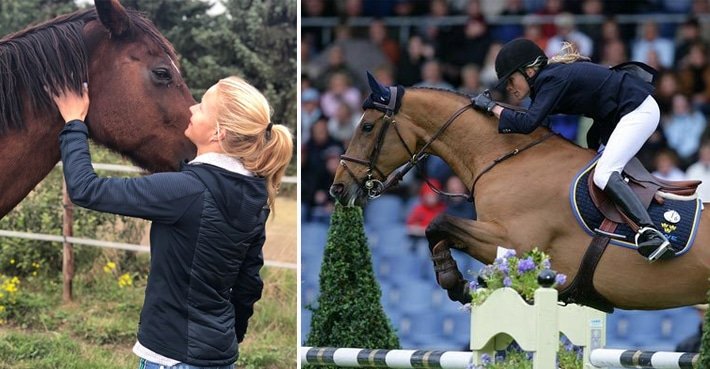Warmblood horses are known for their exceptional athleticism, intelligence, and friendly temperaments, making them a popular choice for equestrians in various disciplines. However, like all horse breeds, caring for warmbloods comes with its own set of challenges. These challenges can be particularly important for first-time horse owners or those considering purchasing a warmblood. In this post, we’ll discuss some of the common challenges in caring for warmbloods and how to handle them.

1. Maintaining Their Energy Levels
Warmbloods are highly energetic horses, and this can sometimes be a challenge for owners. Their energy and athleticism make them excel in competitive sports like dressage, show jumping, and eventing. However, if they don’t get enough exercise, their high energy can lead to boredom or even behavioral issues.
To keep a warmblood happy and healthy, ensure they get regular exercise that aligns with their energy levels. Long rides, structured training, and time in the arena will keep them engaged and allow them to burn off excess energy. Additionally, giving them time in a pasture or paddock where they can move freely helps to meet their physical needs.
2. Providing Mental Stimulation
Because warmbloods are intelligent and quick learners, they can easily become bored with repetitive tasks or lack of variety. Mental stimulation is essential for their well-being, and neglecting this aspect can lead to frustration, anxiety, or behavioral problems.
To avoid this, mix up their training routines. Incorporate different exercises, such as ground work, new jumping patterns, or different riding exercises, to keep their minds active. You can also introduce them to new activities, such as trail riding or even equine activities like obstacle courses, to challenge their minds.
3. Managing Sensitivity
Warmbloods are sensitive horses, and this sensitivity can manifest in different ways. They are particularly responsive to their rider’s mood, environment, and any changes to their routine. While this makes them excellent partners for riders who can maintain clear, consistent communication, it can be challenging for those who are less experienced or who struggle to stay calm under pressure.
For successful care, develop a calm and consistent approach to handling your warmblood. Avoid sudden changes in routine, and ensure their environment is predictable. If your warmblood is nervous or sensitive, spend time building trust through positive reinforcement, clear cues, and gentle handling.
4. Training and Consistency
Warmbloods are intelligent, but they require consistent training. If you don’t maintain a clear structure or training routine, they may become confused or frustrated. These horses thrive in environments where expectations are set and followed regularly.
Stick to a training schedule and provide positive reinforcement for desired behaviors. Warmbloods respond well to structured sessions, where they understand what is expected of them. Also, be patient and avoid overloading them with too much information at once. Focus on building a strong foundation and gradually introducing new tasks.
5. Health Maintenance and Veterinary Care
As with any horse, regular health care is crucial for warmbloods. However, because they are larger horses with more refined, athletic builds, they can sometimes be prone to specific health issues, including joint problems, tendon injuries, and issues related to their hooves. Regular veterinary checkups and proper hoof care are essential for preventing long-term health problems.
In addition, warmbloods often benefit from a tailored diet that supports their high energy needs. Work closely with your veterinarian to ensure your horse is getting the right nutrition to support their overall health and performance. Monitor for signs of lameness or discomfort, and address issues quickly to avoid further complications.
6. Socialization Needs
Warmbloods are social animals, and they thrive in environments where they have opportunities to interact with other horses. Lack of socialization can lead to anxiety, stress, or loneliness. If kept alone, a warmblood may display behavioral problems or become withdrawn.
If possible, provide them with the opportunity to socialize with other horses. Turnout with companions can be crucial for a warmblood’s mental and emotional health. In situations where keeping more than one horse isn’t feasible, you should consider spending extra time interacting with them yourself to provide the necessary companionship.
7. Handling Their Size and Strength
Warmbloods are generally large and strong horses. While this contributes to their impressive athleticism, it can present challenges in daily handling. Their strength can make them difficult to control, especially for less experienced riders or handlers. Whether leading them in the barn or riding, owners need to maintain confidence and control.
Proper training and handling techniques are vital in managing their size and strength. Make sure to use appropriate tack and equipment, such as a well-fitting bridle and saddle, to ensure their comfort and safety. For riders, developing a solid foundation in riding techniques and gaining experience with large horses will help manage these challenges effectively.
8. Preparing for Competitive Demands
Warmbloods are often bred for competition, and if you plan to use your horse in high-level sports like dressage, jumping, or eventing, it’s essential to prepare for the demands of these activities. Intensive training and a structured routine are necessary to ensure your warmblood can perform at its best. Additionally, the costs associated with competing—such as entry fees, transportation, and specialized equipment—can add up.
If you plan to compete, make sure you’re ready for the time and financial commitment required. It’s also important to provide ample recovery time between competitions to avoid overworking your horse. With the right preparation, you can help your warmblood reach its full potential.
Conclusion
Caring for a warmblood horse can be a rewarding experience, but it comes with challenges that require dedication, knowledge, and consistency. From maintaining their energy levels and providing mental stimulation to managing their sensitivity and health needs, warmbloods require a thoughtful and well-rounded care approach. With proper attention to their physical and emotional needs, these horses will thrive, performing well in both training and competition. Whether you’re an experienced equestrian or a first-time horse owner, understanding and addressing these challenges will help ensure a positive, lasting relationship with your warmblood.











